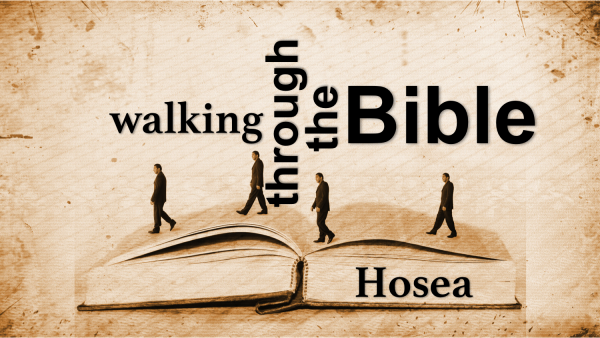Hosea’s name means “deliverance,” a fitting description to one so dedicated to the people’s redemption. He is distinguished as the only writing prophet of Israel who preached to Israel (Amos preached to Israel, but hailed from Judah; and Jonah called Israel home, but preached in Assyria). Hosea’s work began during a time of physical prosperity for Israel, but spiritual decay. During his tenure he denounced Israel for their unchaste ways and foretold the captivity that they would suffer as their result. Much like Jeremiah, Hosea’s writings are full of sorrow and lamentation. He has been called the weeping prophet of the north and the prophet of divine love.
One of the great lessons provided by Hosea’s recognition of Israel’s unrighteousness is found in Hosea 4:6, when the prophet concludes that, “my people are destroyed for lack of knowledge: because thou hast rejected knowledge, I will also reject thee, that thou shalt be no priest to me: seeing thou hast forgotten the law of thy God, I will also forget thy children.” It has been said that “ignorance is bliss,” but Hosea’s expert opinion based on the impurity of his brethren was that ignorance is a very dangerous handicap. It was not as though Israel had no access to the law, nor was it that they were not capable of understanding, knowing, or remembering the law. The problem, simply put, was that they rejected it. Their lack of knowledge led to their destruction as a people, but also it paved the way for similar action by her younger sister Judah (Ezekiel 16).
Hosea, throughout his book, cited the specific sins of Israel that caused them to be in their current state of unrighteousness:
(1) Israel’s offering in high places (8:13), where they sought grain, wine, and oil from Baal (2:5-7,13; 4:10-13; 9:10; 10:1-2; 13:1-2); (2) traffic at the shrines with women devoted to harlotry as a religious rite (4:14); (3) open idolatry (8:5; 10:5; 13:2); (4) turning to pagan nations instead of returning to God (5:13; 7:8-11), forming alliances that carried with them temptations to adopt the culture of the nations (12:1-7), and (5) Israel’s trust in material armaments instead of in the Lord (10:3) (Dunn).
The beauty of Divine love, though, is seen in that amid these heinous atrocities committed by His people, God still looked upon them and said, “When Israel was a child, then I loved him, and called my son out of Egypt. As they called them, so they went from them: they sacrificed unto Baalim, and burned incense to graven images. I taught Ephraim also to go, taking them by their arms; but they knew not that I healed them. I drew them with cords of a man, with bands of love: and I was to them as they that take of the yoke one their jaws, and I laid meat unto them” (Hosea 11:1-4). God’s love cannot be broken, thus all the while He desired their repentance that He might again bless them as He had before.
Christ’s presence in Hosea is seen by the fulfillment of type. The Lord’s mention of having called His son (Israel) out of Egypt is quoted in Matthew 2:15 regarding the return of His Son (Christ) out of Egypt following the death of Herod. Thus is shown “that the Exodus of Israel from Egypt as a new nation was a prophetic type of Israel’s Messiah who was also called out of Egypt in His childhood” (Wilkinson and Boa).
Hosea’s book of prophecy tells so much about Israel’s unrighteous condition. Its message, though, is one filled with hope for the future because God’s love abounds more and more. God’s love still abounds toward hope today if we will but come and return unto the Lord (Hosea 6:1).

